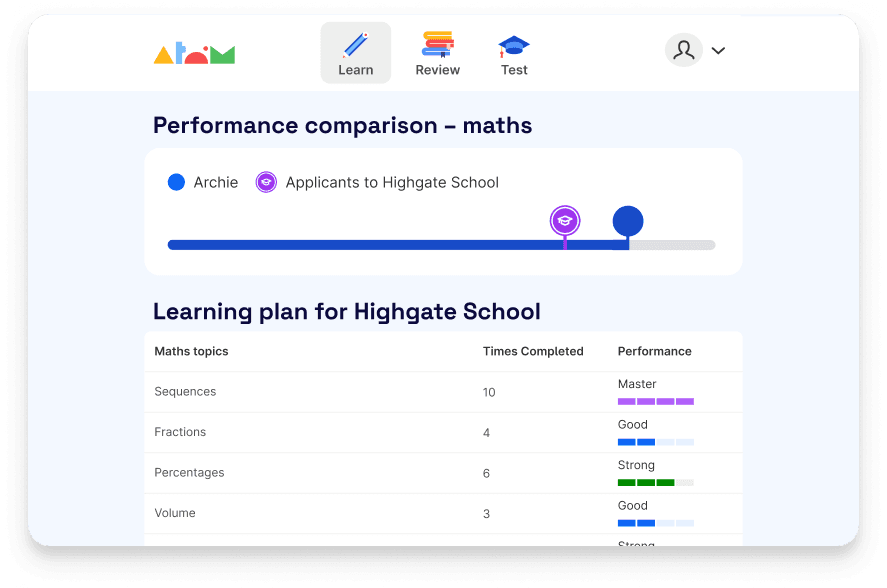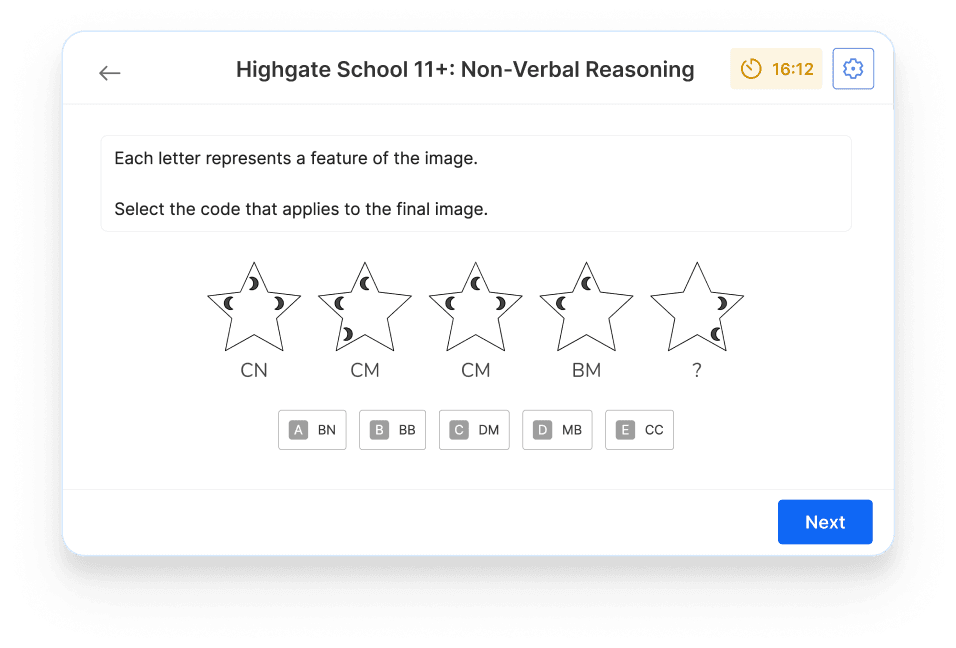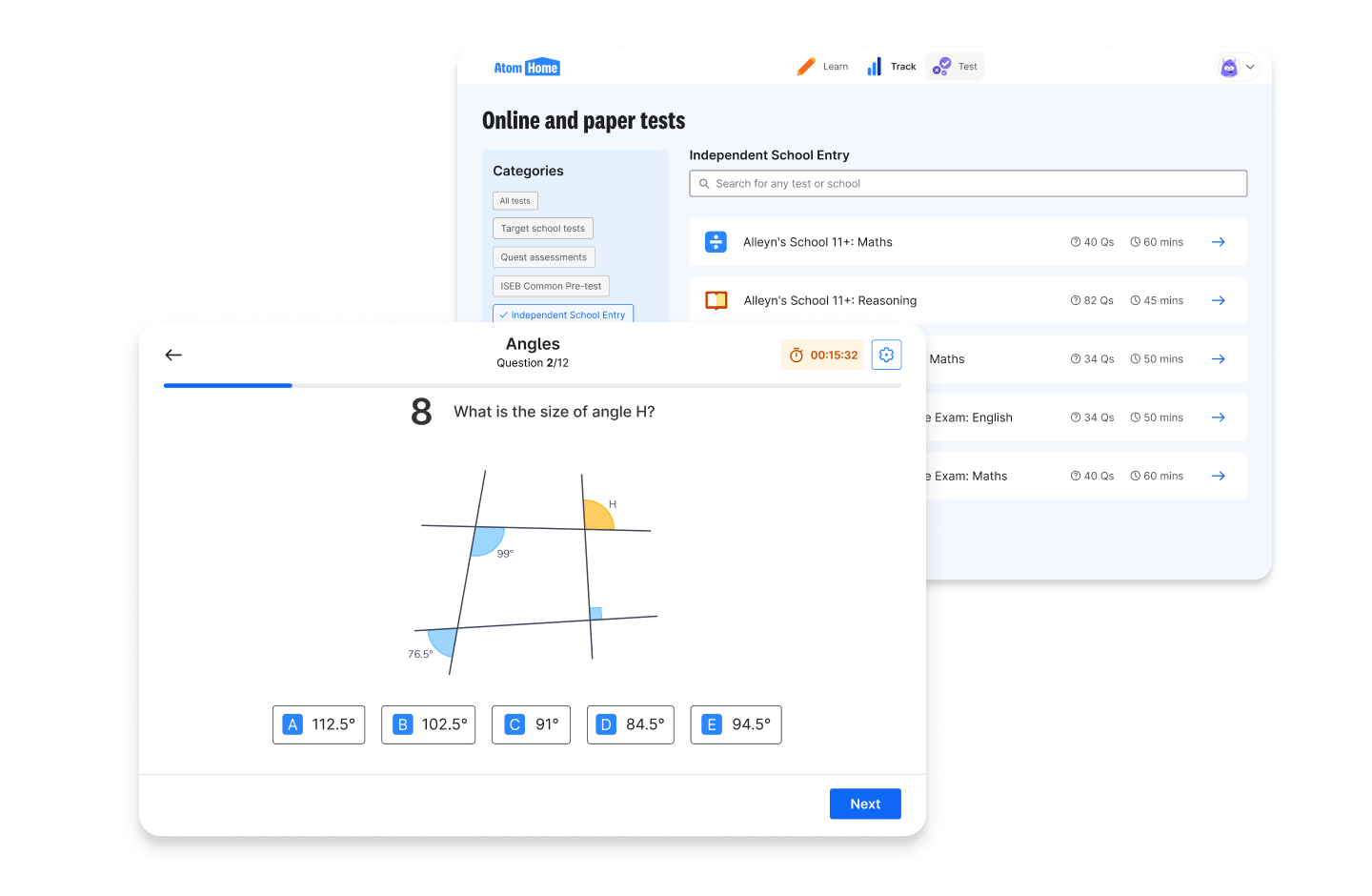Highgate School 11+ entry guide

Considering Highgate School for your child? We’ve collated everything you need to know about 11+ entry. Learn how to apply, what’s on the entrance exam, and how to help your child prepare for success.
Key information for Highgate School
- Address: Highgate School, North Road, London N6 4AY
- Age range and gender: boys and girls aged 4–18
- Type of school: independent day
- Number of students: 1,900+
- Admissions contact: [email protected]
- 11+ open days: October
- 11+ selection criteria: entrance exam, interview, taster lesson and headteacher’s reference
- Financial assistance: means-tested bursaries
- 11+ scholarships: music
About Highgate School
Highgate School is a private day school for boys and girls in the leafy suburb of Highgate in north London. It was founded in 1565 by Sir Roger Cholmeley, a ‘well-beloved and faithful subject’ of Queen Elizabeth I. The school comprises a prep-prep, junior and senior school and educates over 1,900 children.
Pupil wellbeing is at the heart of Highgate School’s ethos. A dedicated wellbeing team aims to ensure pupils feel safe, happy, supported and welcomed in the community. Beyond the classroom, there are extensive extracurricular activities. These include over 150 clubs, access to 30 specialist sports coaches, and a programme of national and international trips.
Highgate School has won several awards over the years. These include Independent School of the Year (2019 and 2020) and Sunday Times London Independent School of the Decade (2020).
Dates for your diary
- Registration closes: November in Year 6
- Entrance exam: December in Year 6
- Interviews and activities: January in Year 6
- Offers of places: February in Year 6
- Acceptance deadline: March in Year 6
Highgate School 11+ entrance exam
All children applying for 11 plus entry to Highgate School take an entrance exam in December in Year 6. This consists of three paper tests: English, maths and non-verbal reasoning.
English
The English test lasts 45 minutes. There are two main sections in total.
In Section 1, your child will need to read a passage of text, which will be a short extract from a story or novel. They will then answer three questions which demonstrate their skills in:
- reading comprehension – showing how well they understand what they have read
- analysis – explaining the effect the writer has created in the passage
The questions will require written responses. Each of the three questions might have more than one part in it. Your child will see how many marks are available for each question in their exam booklet. Your child should spend 30 minutes answering these questions (including time taken to read the passage of text).
Section 2 consists of one question (Question 4). This is a creative writing task. They might be asked to write the opening of a story or a description. They will see prompts to help guide their answer. 10 marks will be available for the content of their writing (such as how original and creative it is). 5 marks will be awarded for spelling, punctuation and grammar.
Your child should spend 15 minutes answering this question. It’s important that they give themselves enough time to check their work to ensure their spelling, grammar and punctuation are accurate.
Maths
The maths test lasts around 45 minutes. This paper tests your child’s knowledge and understanding of the Key Stage 2 maths curriculum. However, your child won’t know exactly which topic they are being tested on as they answer the questions. They need to decide which is the best strategy to solve the problems for each question.
There are four questions in the maths paper. Each question is split into four parts (A, B, C and D). The level of difficulty increases within the question, so your child might find part D more difficult than part A. 10 minutes is allowed for each question. After 10 minutes have passed, all children move onto the next question at the same time. Time is allocated at the end of the test to give children time to go back and check their answers.
Non-verbal reasoning
The third paper tests non-verbal reasoning. This assesses your child’s ability to use logic and reasoning to solve problems with visual information, such as shapes and diagrams. Highgate School uses GL Assessment papers for this test.
This paper is divided into four sections which last around 40 minutes in total. Your child will not be allowed to move forwards or backwards between the sections until they are told to do so.
All the questions in the non-verbal reasoning paper are multiple-choice. Your child will have a separate answer sheet for this test. They need to mark the answer they think is correct by shading in the corresponding answer option on the answer sheet.
Around the same time as the entrance exam, Highgate School will write to your child’s current headteacher to request a confidential reference. Based on this reference and performance in the entrance exam, many children are then invited back to the school in January for the next stage.
The second stage of the assessment consists of group interviews and taster lesson(s). Learn more about interviews, find out top tips, and download a free interview resource in our guide to private school interviews.
Atom’s top tips for applying to Highgate School
Highgate School is a very popular school with families in north London. Here are our top tips to help your child prepare for the selection process.
Bitesize learning
It’s important to build a good knowledge base before school entrance exams. Your child should have a good understanding of the content they’ve been taught at school before testing their knowledge with practice tests.
Using a ‘little and often’ approach when learning is key – our brains encode new information more effectively when dealing with smaller ‘chunks’ of information. For children aged 10–11, child psychologists recommend regular study sessions of 20–30 minutes.
With Atom Home, you don’t need to worry about creating a study schedule. When you enter your target schools, you’ll get a bespoke learning plan tailored to your schools’ entrance exams. Know exactly what your child needs to do each week to confidently pass.

Read widely
Entrance exams test children’s ability to analyse and interpret written information. Regular reading is a great way to help your child build these skills.
Encourage them to read books from different genres and by a diverse range of authors. Increasing the variety of your child’s reading will help them understand different styles, tones and purposes. Meanwhile, reading a little every day will help widen their vocabulary, sharpen their analytical thinking, and enhance their imagination.
Looking for reading inspiration? Check out our Key Stage 2 reading list.
Hone curiosity
Selective schools are often looking for children who are interested in learning. You can help by supporting your child’s broader learning, their intellectual curiosity, and their passion for developing an understanding of the world.
Talk to your child about the world we live in and inspire an interest in current affairs with age-appropriate journalism. It’s also a good idea to make sure they’re benefitting from a rich variety of experiences, such as visiting libraries, museums and galleries.
Refine exam technique
When your child feels confident with their knowledge of the exam topics, they’ll be ready to put their knowledge to the test.
Mock tests can help your child develop problem-solving skills and refine exam technique. They’re also a great way to consolidate learning, while highlighting any knowledge gaps they might want to tackle before exam day.
When you set Highgate School as a target school on Atom Home, your child will get tailored mock tests for Highgate School as part of their learning plan. Know what to expect on exam day.

Celebrate progress
Setting regular, achievable goals and celebrating your child’s progress – no matter how big or small – will help keep their motivation high.
Make sure to encourage a growth mindset. This means celebrating effort, as well as achievement! When your child makes mistakes or struggles to understand a particular topic, help them understand that they’ll improve through practice. Regular praise will help your child improve their resilience when tackling new and challenging topics.
Take control of your child’s independent school prep.

Worried about keeping pace with the competition? Independent school exams can feel unpredictable, but your child’s preparation doesn’t have to be. Atom shows you exactly what to practise and how they’re performing, so you can stay ahead throughout the admissions process.
- Follow personalised weekly exam plans that show them what to learn next.
- Practise with mock tests that replicate their exam and generate new questions every time, so they build real exam skills.
- Track progress and see how they compare to others preparing for the same schools.
Start your free trial and help your child get ready for senior school entry.
